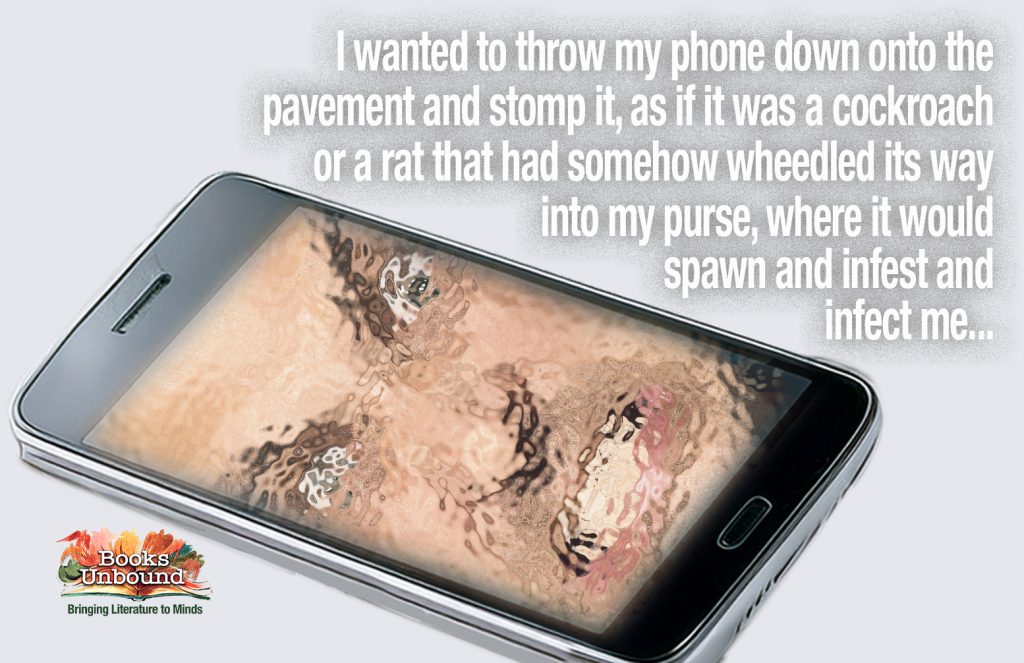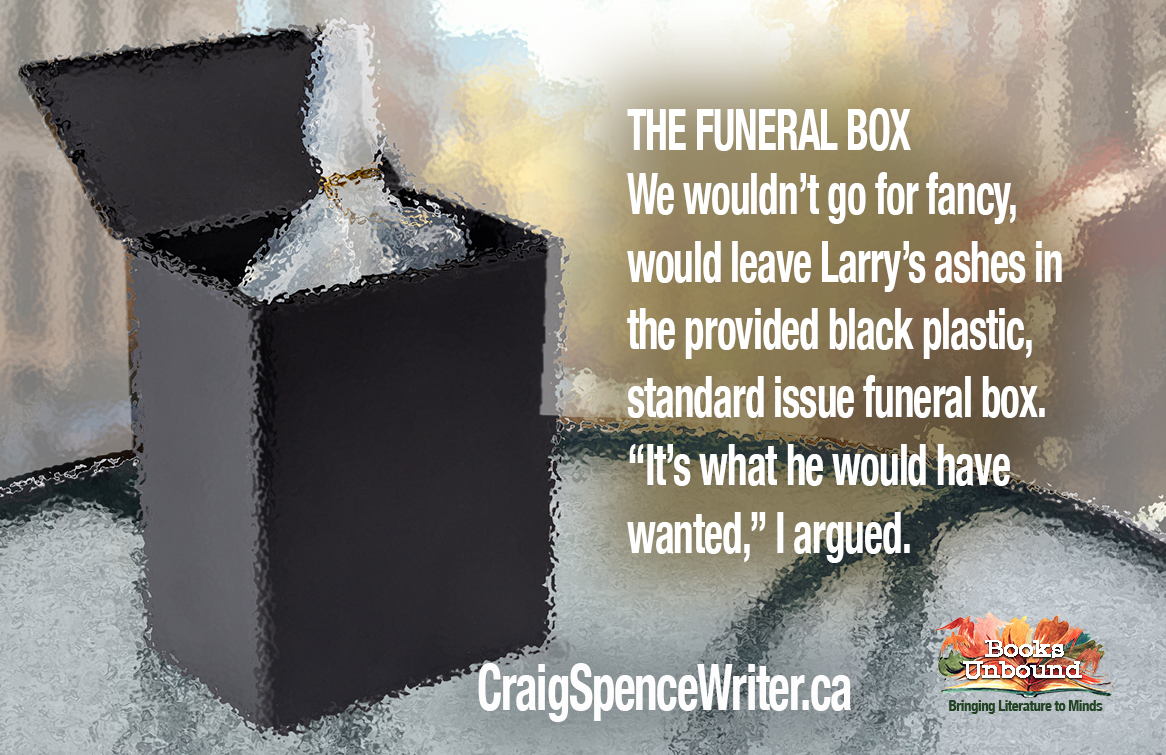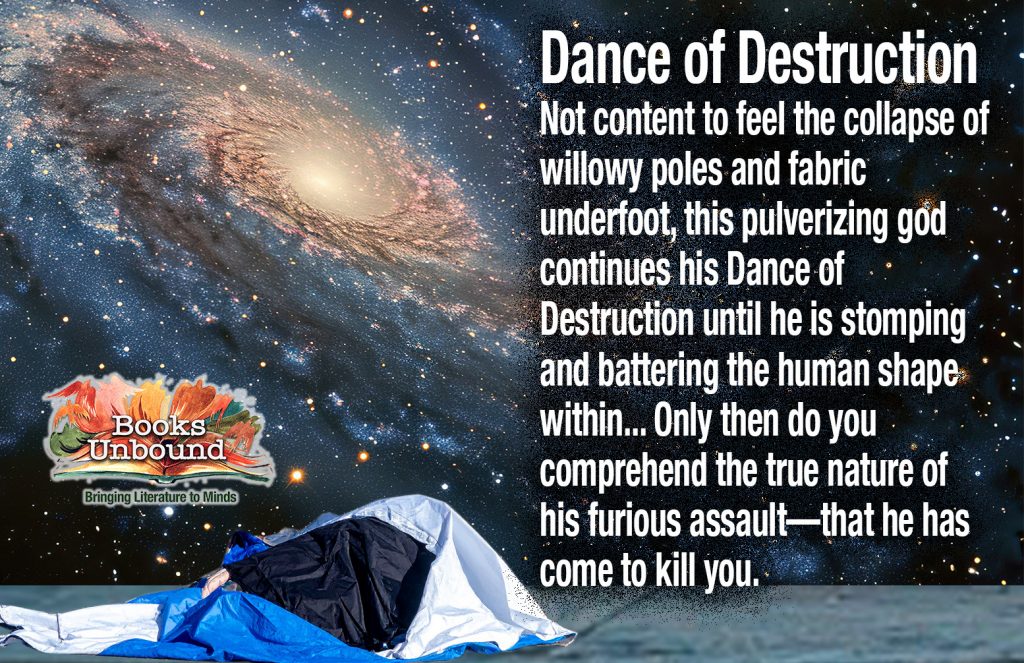
Lucinda MacDonald hasn’t made direct contact with her abusive father Carl MacDonald for 20 years, but after a celebration of life for her brother Larry, whose death she blames on the old man, she starts receiving harassing phone calls from him. She wants to throw away her phone and contact the police, but her husband Josh tells her not to…
The phone calls began just a couple of days after Larry’s celebration of life. Every day, at least once a day, my phone would summon and—if I answered—I’d hear his raspy voice burrowing into my ear, clawing deeper and deeper into the thinking flesh.
That first time I tailspinned into utter shock and terror. How did he get my number? I wanted to throw my phone down onto the pavement and stomp it, as if it was a cockroach or a rat that had somehow wheedled its way into my purse, where it would spawn and infest and infect me if I didn’t kill it.
“Don’t do that,” Josh admonished, gripping me by the shoulders and fixing me with his gangster-eyes.
“Why not?” I shouted. “I’ll get another phone!”
“Yes, let’s get you another phone, but keep that one and—I hate to say this, love—but you’ve gotta take his calls, not always but from time-to-time.”
“Why the fuck would I want to do that?”
He sighed. “Because that phone is his only means of contact right now. If you cut the connection or refuse to answer, he’ll start looking for another way. He’s bat-shit crazy. He wants to get back at you…”
“Get back at me?” I howled.
“Don’t try to think it through, love,” he forced me to look at him, bracketing my head in his hands. “Bat-shit crazy. Just remember that.”
“I’ll go to the cops. Det. Drennan. Get a restraining order.”
Josh shook his head, like a teacher frustrated by a student playing stupid.
“Why not? He should know about this, shouldn’t he. It will help with his investigation.”
“Your old-man isn’t going to obey any restraining order, hon. How many times have you read in the news about a woman being assaulted and killed by a husband who was under a restraining order. For christ’s sake, it will only make him madder.”
He was right, of course. I slumped, all the fight gone out of me. He held me in his arms and rocked us consolingly. My fear subsided. Josh soaked it up like a sponge, calming me through some kind of emotional osmosis, comforting me like a child.
“What are we going to do?”
“It’s going to be hard, love. Really hard,” he warned.
“I know.”
“We’re going to keep him on the line, like a fish on a hook, and reel him in.” He ogled and squirmed like a cod flopping around in the bottom of a boat before you whacked it on the head.
“Stop talking in metaphor,” I shoved him away.
We laughed.
“Seriously, you’re going to have to play him, hon, until we figure out what to do. In the meantime, keep a record of every call and download his messages. Just because we’re keeping this secret doesn’t mean we’ve got anything to hide. Consider every exchange with your old-man as evidence. We may need it for our day in court, if it ever comes to that.”
“Where did you learn all this stuff?”
Josh looked nobly over my shoulder, an aristocrat posing for posterity. “My depths are in a different lake from yours, sweetheart, but they’re just as deep and just as dark.”
“Fuck off,” I shoved him again, and he received my benediction gleefully. If I didn’t love that man so much, I’d have to hate him.
***
Date/Time: 20100802-1143
Location: Oswego Street, Penthouse
CM: [Breathing heavily, not talking.]
LM: [Listening, waiting.]
CM: [In a taunting tone of voice] Why don’t you say something, sweetheart?
LM: I’ve got nothing to say to you. Stop calling me.
CM: Nothing to say? After all these years?
LM: Nothing to say. Ever. Stop calling me.
CM: But I’ve forgiven you. You don’t have to feel ashamed.
LM: [Listening, waiting.]
CM: My wounds healed up a long time ago—except the cuts to my heart, lovie. There’s not even any scars. You’re forgiven.
LM: [Listening, waiting.]
CM: Don’t you think it’s time we became a family again?
LM: We never were a family. You were—still are—a tyrant and a perv. Stop calling me.
CM: [In a sneering tone] That’s not a very nice thing to say! You were delusional that night, honey. I never meant to hurt you. I just wanted to console you, is all.
LM: ‘Fucking bitch! I’ll kill you!’ You don’t remember yelling that?
CM: Yeah! After you hit me with a shot of bear spray!
LM: ‘You’re all alike, you bitches!’ Don’t you remember saying that about me and Mom, down in the kitchen, before you came up to lovingly attack me?
CM: [Getting angry] I was grieving, for christ’s sake! Out of my mind with grief!
LM: And breaking down my bedroom door was part of your grieving process?
CM: I’m not that man anymore, Lucinda. I’ve got over my grief.
LM: I’m happy for you. Now, stop calling me.
CM: How come you keep saying that? Don’t you want to be a family again?
LM: You’re not part of my family, Father. Never will be. Stop calling me.
CM: I regret having said it out loud, dear, but you really are a bitch! Aren’t you?
LM: Stop calling me, and you won’t have to put up with my bitchiness anymore.
CM: I’ll never stop calling you, hon. I’ll never stop trying to pull our family back together.
LM: [Listening, waiting.]
CM: I’m a grandfather now. I want to see my grandson. Get to know him.
LM: [Listening, waiting.]
CM: D’ya hear me! I want to get to know my grandson. Be a grandfather to him.
LM: The same way you were a father to Larry?
CM: I was a good father. Larry needed toughening up. Needed to become a man.
LM: [Angrily] Was spray painting his mural and kicking him half to death inside his tent part of your making ‘a man’ him?
CM: You’re nuts! I never had anything to do with that!
LM: [Listening, waiting.]
CM: You can’t keep me from seeing my grandson! I’ve got rights as his grandfather!
LM: Try to see him and I’ll get a restraining order slapped on your ass before sunset. I’ve still got all the evidence I’d need to make an order stick, and I won’t hesitate to make our sordid details public. There’s no need to keep them secret anymore. If you want to share that bit of family lore with my sisters, go ahead and try me.
CM: [Silence]
LM: [Ends call]


